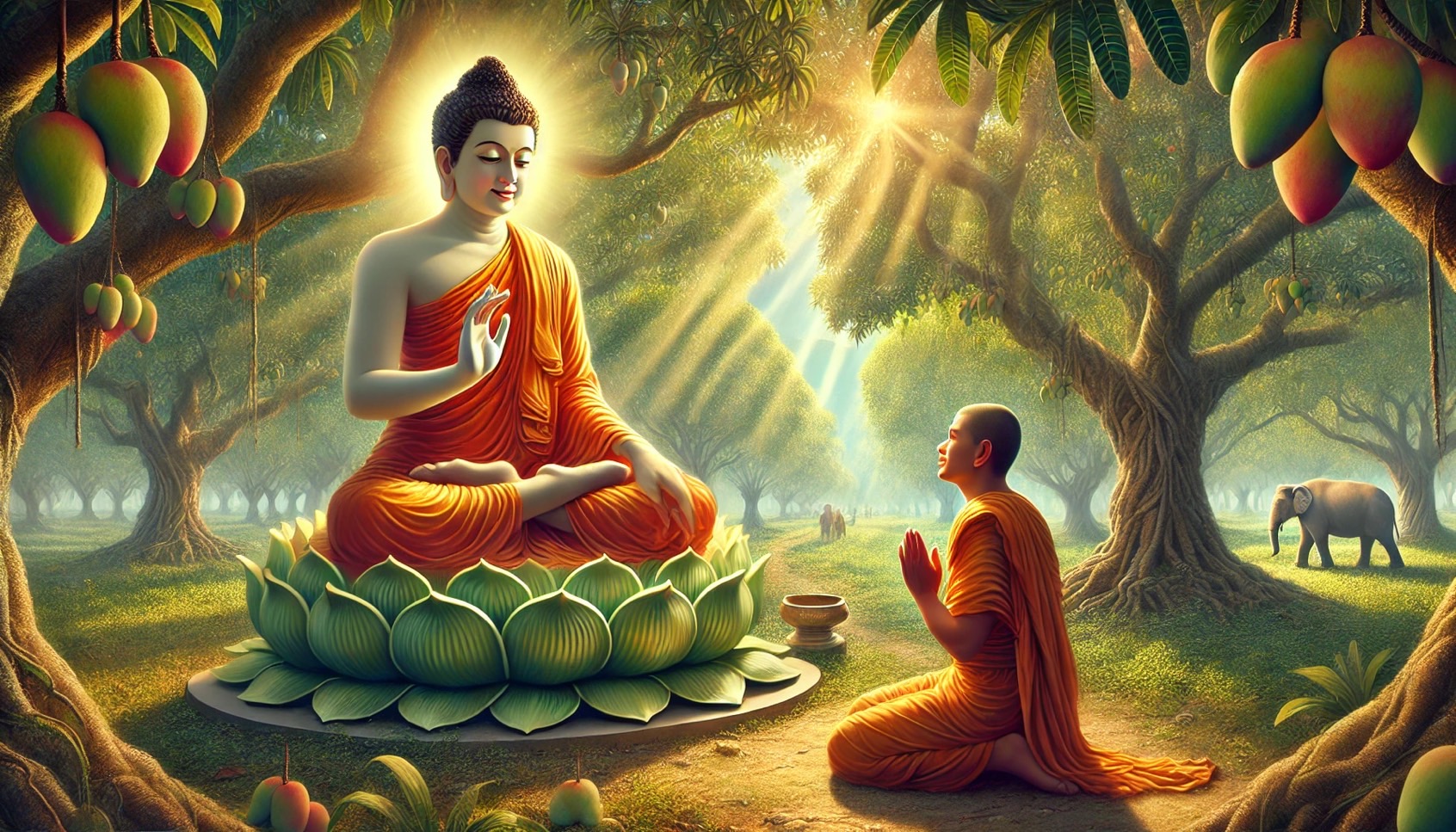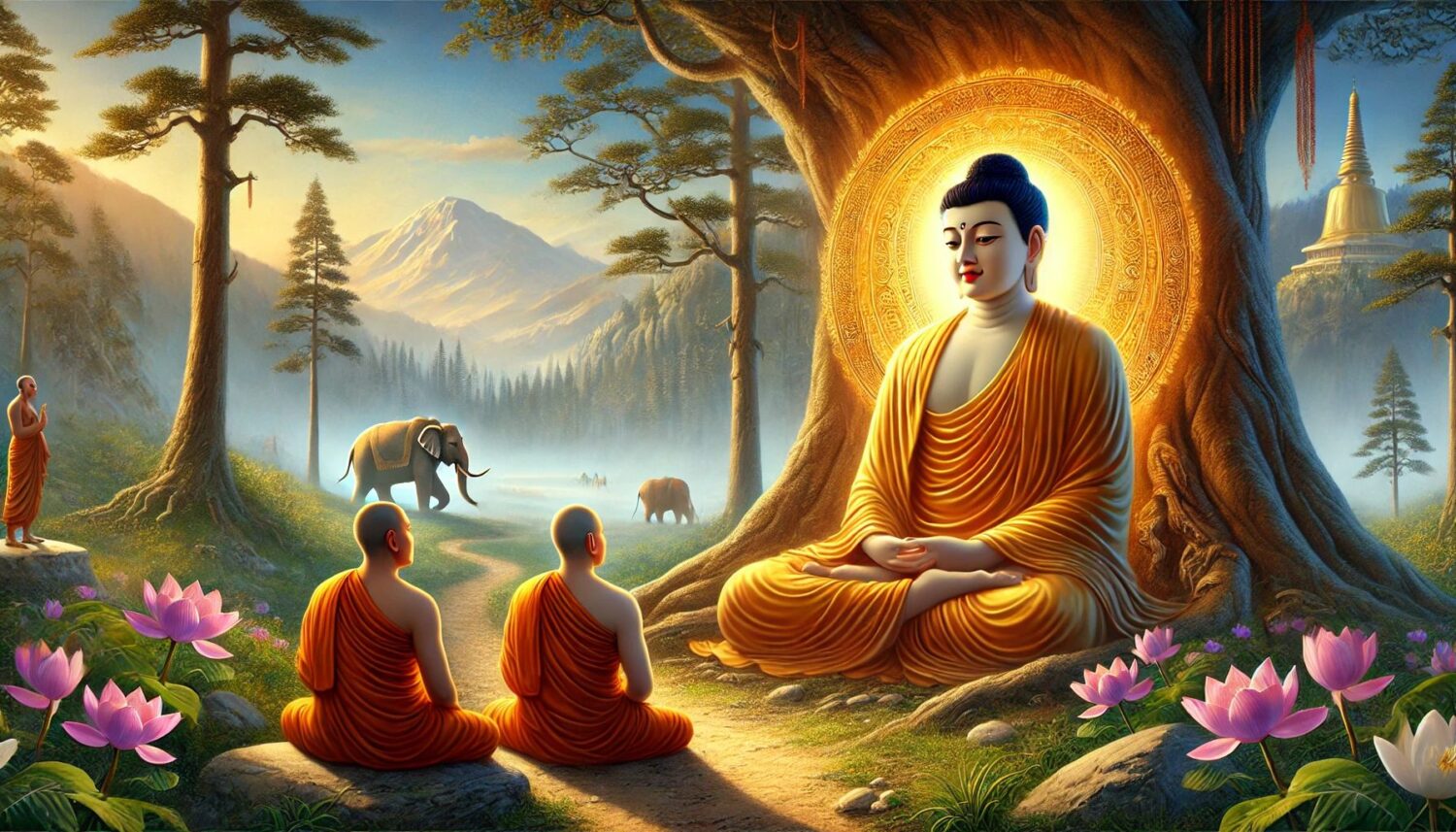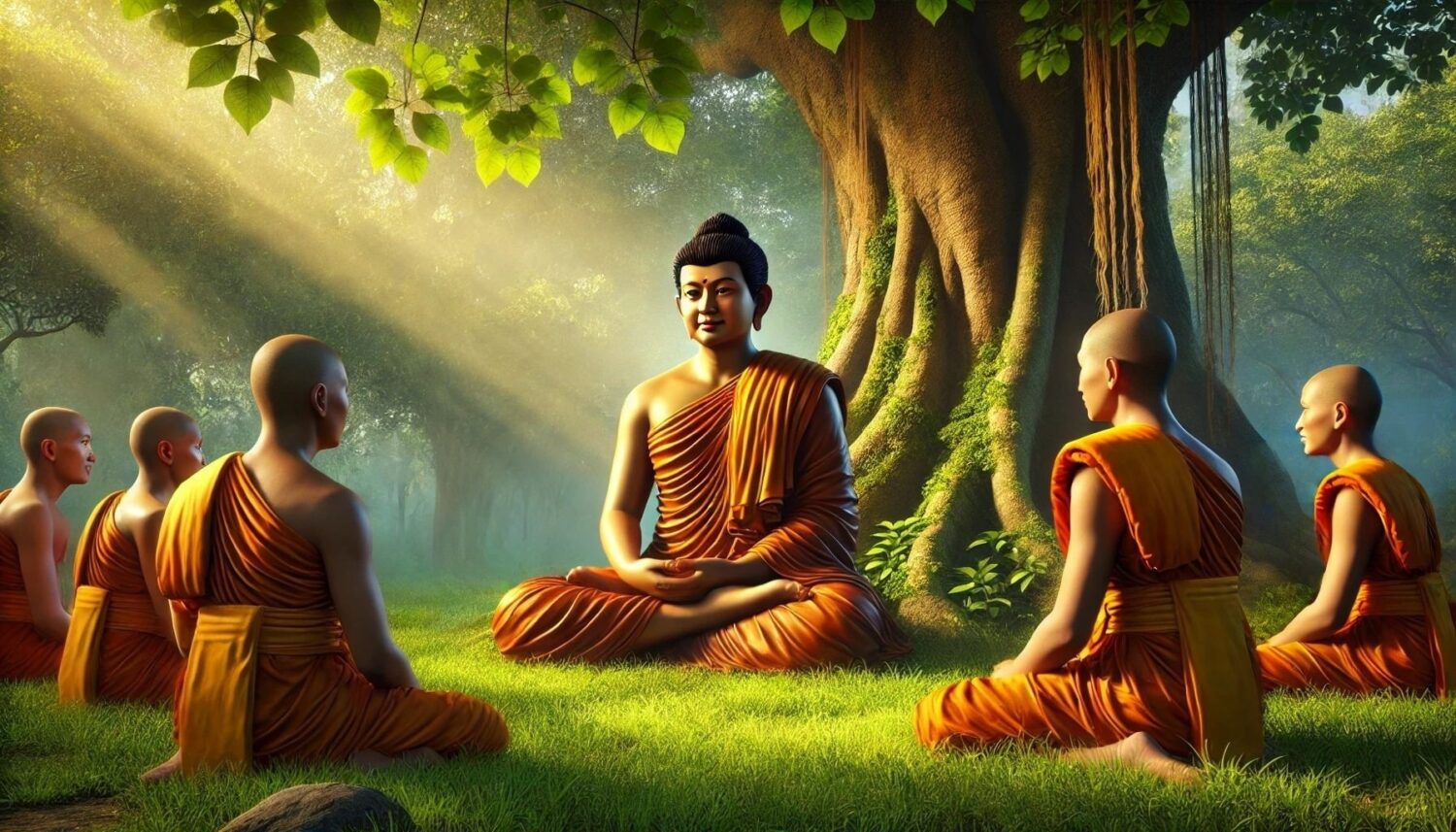
Date: 11/23/2024 11/24/2024
Location: Star Lake Meditation Center
Teacher: Otto Huang
Dharma Talk
Cunda’s preferred path of pure practice – float up! Stone
Once, the Buddha stayed in the mango grove of Cunda, a blacksmith in the city of Pava. As the host, Cunda had the opportunity to meet the Buddha. After greeting him, the Buddha asked:
“Cunda, which kind of pure practice among ascetics do you favor?”
“Venerable Sir, I favor the pure practice of the western Brahmins. They carry staffs and water pots, wear flower garlands made from plants, worship the fire god, and frequently wash their hands and purify themselves.”
“Cunda, how do these western Brahmins practice their purity?”
“Venerable Sir, the western Brahmins teach us that on the fifteenth day of each month, we should wash our heads with sesame and amla water, considering it a purification ritual.
They instruct us to wear new, clean white woolen robes, lie on ground smeared with cow dung, and upon waking, touch the ground with our hands while reciting, ‘This ground is pure, and so am I.’ If we cannot touch the ground, we touch moist cow dung; if we cannot touch moist cow dung, we touch fresh grass, reciting, ‘This is pure, and so am I.’ If none of these are possible, we worship the fire; if worshipping fire is not possible, we fold our hands toward the sun; if folding our hands toward the sun is not possible, we bathe three times at sunset.
By doing this, one attains purity. If one does not follow this, one can never be pure. Venerable Sir, this is the path to purity taught by the Brahmins, and it is the practice I admire and believe in.”
“Cunda, the path to purity of the noble ones is different from that of the western Brahmins.”
“Venerable Sir, how do the noble ones practice purity? Please tell me, Blessed One.”
“Very well, Cunda, listen carefully, and I will explain.
“Cunda, impure actions and their results are the impure practices that burden a person and lead to downfall. Those who commit such impure actions do not attain purity, regardless of whether they touch the ground upon waking, handle cow dung or fresh grass, or recite, ‘This is pure, and so am I.’
“What are these impure actions? They are ten in total: three bodily actions—killing, stealing, and sexual misconduct; four verbal actions—lying, sowing discord, harsh speech, and idle talk; and three mental actions—greed, hatred, and wrong views. With these ten evil actions, one remains impure.
“Cunda, good actions and their results are the pure practices that lighten one’s burden and lead to upliftment. Those who perform such good actions attain purity, regardless of whether they touch the ground upon waking, handle cow dung or fresh grass, or recite, ‘This is pure, and so am I.’
“What are these pure actions? They are the ten wholesome actions: abstaining from killing, stealing, sexual misconduct, lying, sowing discord, harsh speech, idle talk, greed, hatred, and wrong views. With these ten wholesome actions, one attains purity.”
Hearing this teaching, the blacksmith Cunda was greatly inspired, and he took refuge in the Buddha, the Dharma, and the Sangha, requesting to become a lay follower of the Buddha.

